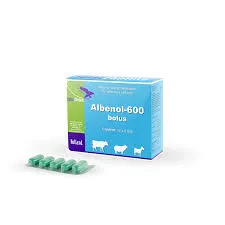- Afrikaans
- Albanian
- Amharic
- Arabic
- Armenian
- Azerbaijani
- Basque
- Belarusian
- Bengali
- Bosnian
- Bulgarian
- Catalan
- Cebuano
- Corsican
- Croatian
- Czech
- Danish
- Dutch
- English
- Esperanto
- Estonian
- Finnish
- French
- Frisian
- Galician
- Georgian
- German
- Greek
- Gujarati
- Haitian Creole
- hausa
- hawaiian
- Hebrew
- Hindi
- Miao
- Hungarian
- Icelandic
- igbo
- Indonesian
- irish
- Italian
- Japanese
- Javanese
- Kannada
- kazakh
- Khmer
- Rwandese
- Korean
- Kurdish
- Kyrgyz
- Lao
- Latin
- Latvian
- Lithuanian
- Luxembourgish
- Macedonian
- Malgashi
- Malay
- Malayalam
- Maltese
- Maori
- Marathi
- Mongolian
- Myanmar
- Nepali
- Norwegian
- Norwegian
- Occitan
- Pashto
- Persian
- Polish
- Portuguese
- Punjabi
- Romanian
- Russian
- Samoan
- Scottish Gaelic
- Serbian
- Sesotho
- Shona
- Sindhi
- Sinhala
- Slovak
- Slovenian
- Somali
- Spanish
- Sundanese
- Swahili
- Swedish
- Tagalog
- Tajik
- Tamil
- Tatar
- Telugu
- Thai
- Turkish
- Turkmen
- Ukrainian
- Urdu
- Uighur
- Uzbek
- Vietnamese
- Welsh
- Bantu
- Yiddish
- Yoruba
- Zulu
Nov . 18, 2024 12:08 Back to list
Ivermectin Injectable Treatment for Parasitic Infections in Animals and Humans
The Role of Ivermectin for Injection in Veterinary Medicine
Ivermectin, a broad-spectrum antiparasitic agent, has revolutionized the veterinary landscape since its introduction. Initially discovered for its efficacy in combatting parasitic infections in livestock, ivermectin has emerged as a cornerstone drug in the management of parasitic diseases. Among its various formulations, ivermectin for injection has gained prominence, offering unique advantages in terms of effectiveness and ease of administration.
Understanding Ivermectin
Ivermectin belongs to a class of medications known as avermectins, derived from the fermentation products of the soil bacterium *Streptomyces avermitilis*. This compound primarily works by binding to glutamate-gated chloride channels in the membranes of invertebrate muscle and nerve cells. This binding leads to increased permeability of the cell membrane, resulting in paralysis and death of the parasites. Ivermectin is effective against a range of parasites, including nematodes, arthropods, and some ectoparasites, making it a versatile tool in both large and small animal veterinary practices.
Formulations and Routes of Administration
Ivermectin is available in various formulations, including oral, topical, and injectable forms. While oral and topical formulations have their place, ivermectin for injection is particularly beneficial in certain scenarios. Injectable ivermectin allows for precise dosing, immediate absorption, and a prolonged duration of action, which can be crucial in managing severe infestations or in cases where oral administration is impractical.
The injectable formulation is especially valuable for large animals such as cattle, horses, and swine, where body weight variations can complicate dosage. The ability to administer ivermectin via injection simplifies treatment regimens and increases the likelihood of compliance in veterinary settings.
Indications for Use
ivermectin for injection

Ivermectin for injection is indicated for the treatment of various parasitic infections in livestock and companion animals. It is highly effective against multiple species of nematodes, mites, and ticks, making it an invaluable resource for veterinarians. In cattle, it is used to manage infections such as blue-tongue, lungworms, and other gastrointestinal parasites. In equines, ivermectin is employed to treat strongyles, pinworms, and other parasitic infestations.
Beyond this, ivermectin has also found application in the management of certain ectoparasites, enhancing its utility. For example, in dogs and cats, injectable formulations can be used to treat conditions like Demodectic mange, giving veterinarians a powerful tool in their arsenal against parasitic diseases.
Safety and Efficacy
The safety profile of ivermectin is generally favorable. Most animals tolerate the drug well, and adverse effects are rare when administered in appropriate dosages. However, caution is advised when using ivermectin in certain breeds of dogs, particularly Collies and related breeds, which may exhibit hypersensitivity due to a genetic mutation that affects drug metabolism.
Efficacy studies have consistently shown that ivermectin for injection significantly reduces parasite burdens, improving animal health and productivity. The broader implications of effective parasite control extend beyond individual health; it can lead to improved growth rates, better feed conversion, and enhanced reproductive performance in livestock.
Conclusion
Ivermectin for injection is a significant advancement in veterinary medicine, providing an effective means of combating a wide array of parasitic infections. Its ability to be administered easily, along with its potent efficacy and good safety profile, has made it a staple in both large and small animal practices. As veterinary medicine continues to progress, the importance of effective disease management will only increase, and ivermectin will undoubtedly remain a key player in safeguarding animal health and welfare. Whether it is for treating livestock or companion animals, the role of injectable ivermectin cannot be overstated, positioning it as an essential tool in modern veterinary therapeutics.
-
Guide to Oxytetracycline Injection
NewsMar.27,2025
-
Guide to Colistin Sulphate
NewsMar.27,2025
-
Gentamicin Sulfate: Uses, Price, And Key Information
NewsMar.27,2025
-
Enrofloxacin Injection: Uses, Price, And Supplier Information
NewsMar.27,2025
-
Dexamethasone Sodium Phosphate Injection: Uses, Price, And Key Information
NewsMar.27,2025
-
Albendazole Tablet: Uses, Dosage, Cost, And Key Information
NewsMar.27,2025













